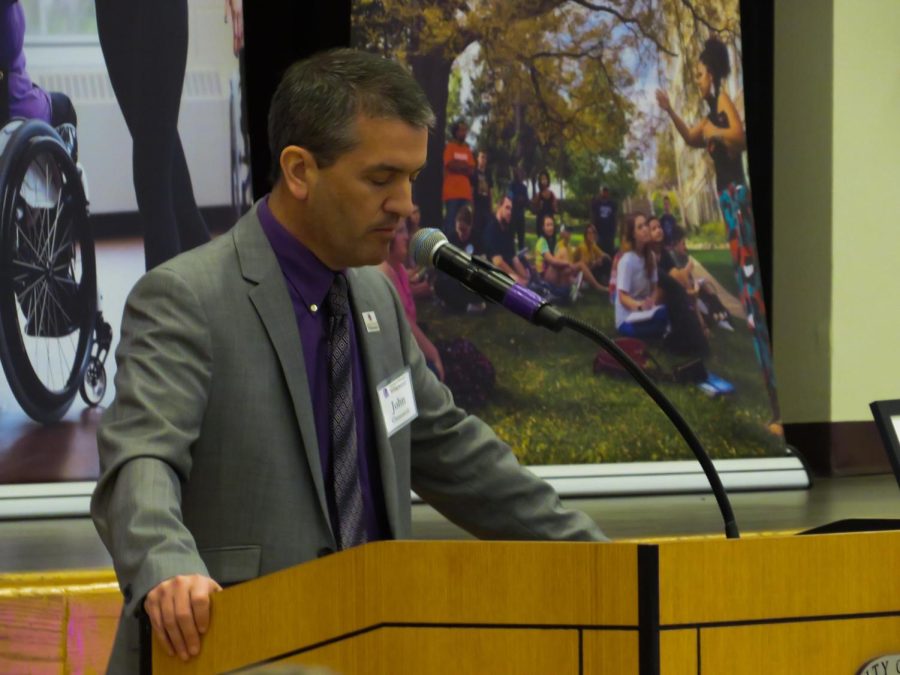The 2022-2023 Fiscal Budget
‘Building confidence through accuracy’
Dr. John Chenoweth, Interim Chancellor, welcomes all of the award recipients, alumni, and guest attendees at the Founder’s Day event.
October 2, 2022
Interim Chancellor John Chenoweth hosted the Budget Town Hall meeting Tuesday, Sept. 27 to discuss this year’s fiscal plan, as well as reflect on the previous year’s budget. The meeting highlighted the sum of money within the reserves, plans for revenue, current and future enrollment, and an expected 2% increase of pay for full-time active employees of UW-Whitewater starting Jan. 1 of 2023.
To open the meeting, Chancellor Chenoweth ensured to make the budget as transparent and understandable for the betterment of all involved in the UW-Whitewater and UW-Rock County financial affairs. In late June, roughly $15.5 million was paid for by the tuition pool and auxiliary operations (including the bookstore, housing, dining, and other programs), and another $6.5 for general operations. The problem, however, existed within the auxiliary operations, as the 2021-2022 budget projected an estimated $4.4 million. Chenoweth shared that the increased balance may be in part of resident hall renovations and the rising need for workers within dining halls. This led to the discussion of the 2022-2023 budget, as well as the importance of the $16.2 million in reserves.
“It’s a good thing we’re not below that number because we would not make it through another year,” stated Chenoweth in regard to the operations budget. “That’s why they are split into two projected plans.”
Chenoweth continued by sharing the tuition pool balances, highlighting that 54% ($16.2 mullion) of that pool balance comes from the UW-W main campus tuition, whereas only 4% ($1.9 million) is from the Rock County campus. However, centrally speaking, the budget is mostly focusing on the 16.2 million.
“When we talk about where we sit as a campus all the other things matter,” continued Chenoweth, “ yet we find centrally we are doing well, but housing or dining might not be.”
Transitioning from those balances, he moved on the total revenue plan for this academic year. The largest portions of the revenue were estimated at $85.6 million (33.3%) for tuition, $54.5 million (21.2%) for financial aid, and $40.1 million (15.6%) for auxiliary operations.
As for the Rock County Campus, Chenoweth explained that their salaries and wages, fringe benefits, and amount spent on supplies and expenses are significantly lower, but roughly on the same scale. Their total tuition pool accounts for $4.4 million, and have been seeing a rise in enrollment over the past two years.
In terms of the $8.8 million gap within the reserve, Chenoweth stated that UW-W is working on the pay plan with UW System, which targets general purpose revenue. It is projected that the gap will decrease within the coming years.
To conclude the meeting, Chenoweth shared that the current reserve of the main UW-W campus should last for another two years, highlighting the success of enrollment rates.
“The current freshman and sophomore class are the largest in over five years,” said Chenoweth.
Looking to the future, Chenoweth hopes to see these enrollments roll into upperclassmen and graduate programs, bringing more success both academically and financially to the UW-W campus.















